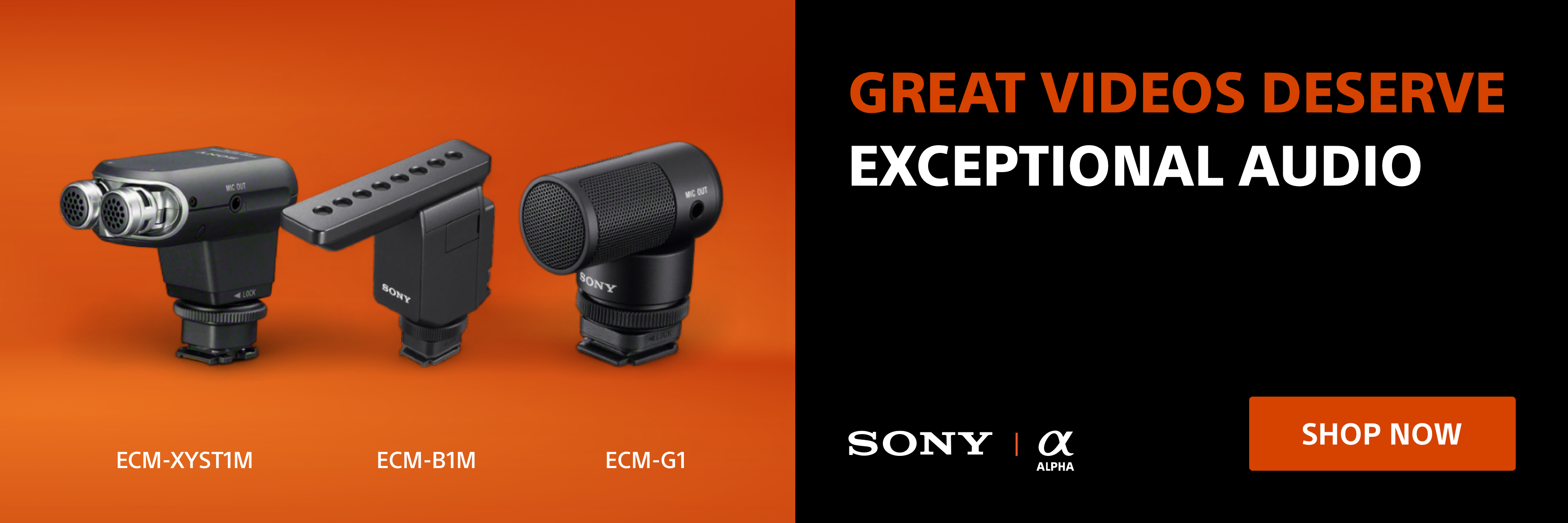In this article we connect with Sony Artisan and longtime photographer Ira Block for his top tips on street photography.
Street photography can be a particularly difficult genre. Besides having to be ready to capture the moment in an instant with your camera, and making sure the moment that you’re capturing is interesting, you also have to overcome any uneasiness of photographing strangers. Ira Block has been shooting street photography for many years, and while it’s a constant education, through his experience he’s picked up on a few ways to make it a little easier. In this article, the Sony Artisan shares some of his top tips for capturing authentic moments in a variety of street photography scenarios. “These are not hard, fast rules. These are just some things over the years I've noticed. Certain things work sometimes, certain things work differently other times – it all depends on the situation.” Keep reading to learn more about different street photography styles, which gear to use and the best approaches for photographing people on the streets.
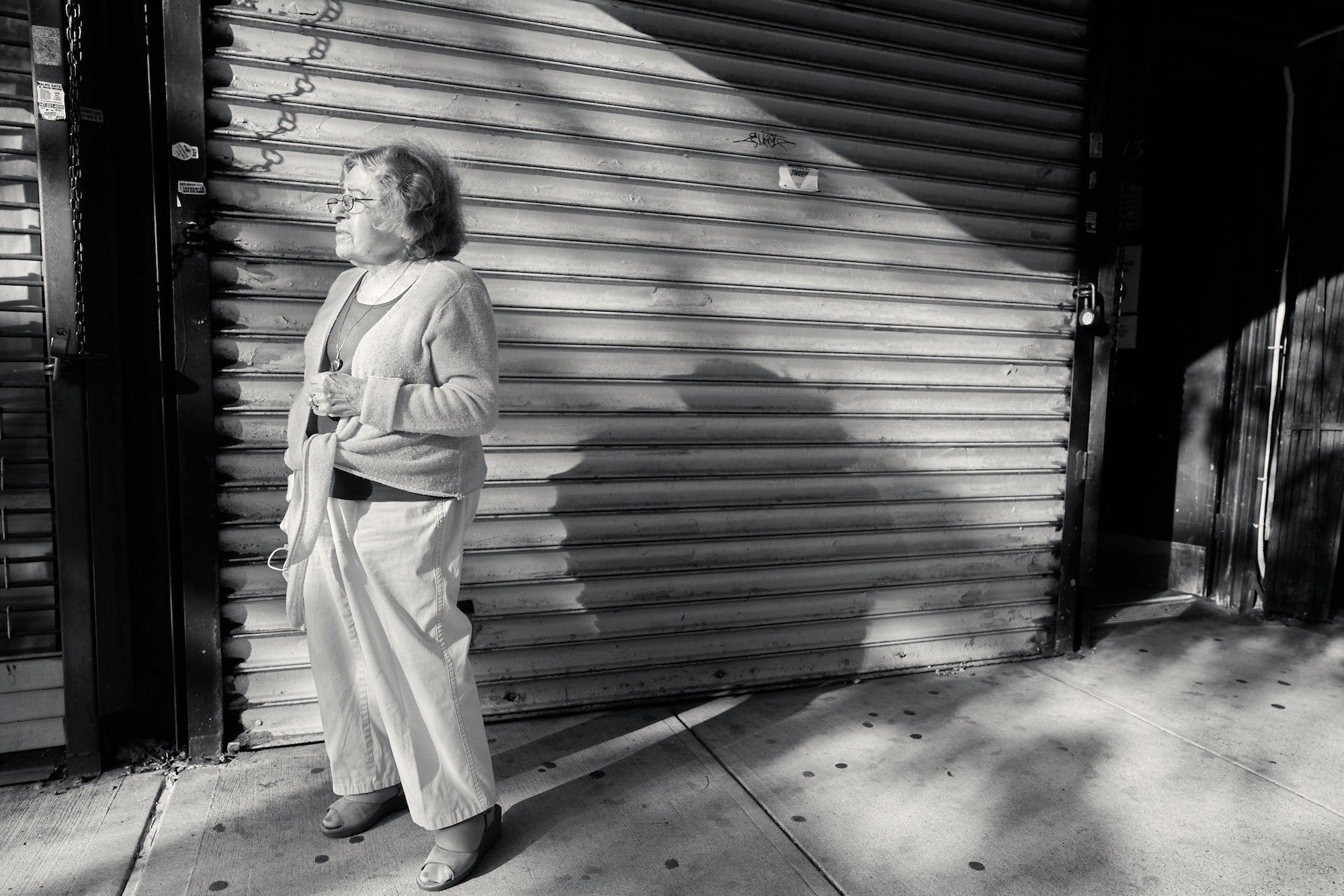
Photo by Ira Block. Sony Alpha 7C. Sony 24mm f/1.4 G Master. 1/320-sec., f/5, ISO 200
Photographer Ira Block shares his top tips for capturing authentic moments on the streets.
Establish Your Style
There are different forms of street photography, and Block says to go with whichever style is the one you feel best doing. “Street photography is a term that's being used to go across a lot of things,” he says. “There's one type where you grab one or two images quickly, and then you move on just like the person doesn't even realize their picture is being taken. You pick up the camera, take a couple of pictures. Sometimes you get one, sometimes you maybe get two or three, and that's it.”
“Are you grabbing the Garry Winogrand type of just click and run image that's very frenetic looking? If you do that and you make that your style, then it works. If you take one image that way, and it's busy and it looks kind of weird, then it's a mistake. What I like to think of is that if you do a picture that's kind of different and funky, it's a mistake. If you make it a style and continue doing it that way, it's art.”
If the grab-and go way isn’t your style, there are other ways to photograph people on the streets that have more of a connection. “The other kind of street photography would be where there's a scene or situation going on and you really want to work that scene and do a lot of more in-depth photos,” explains Block. “They're aware I'm there. They know I'm doing a portrait where they're connecting with the camera and looking at the camera, there's some connection.”
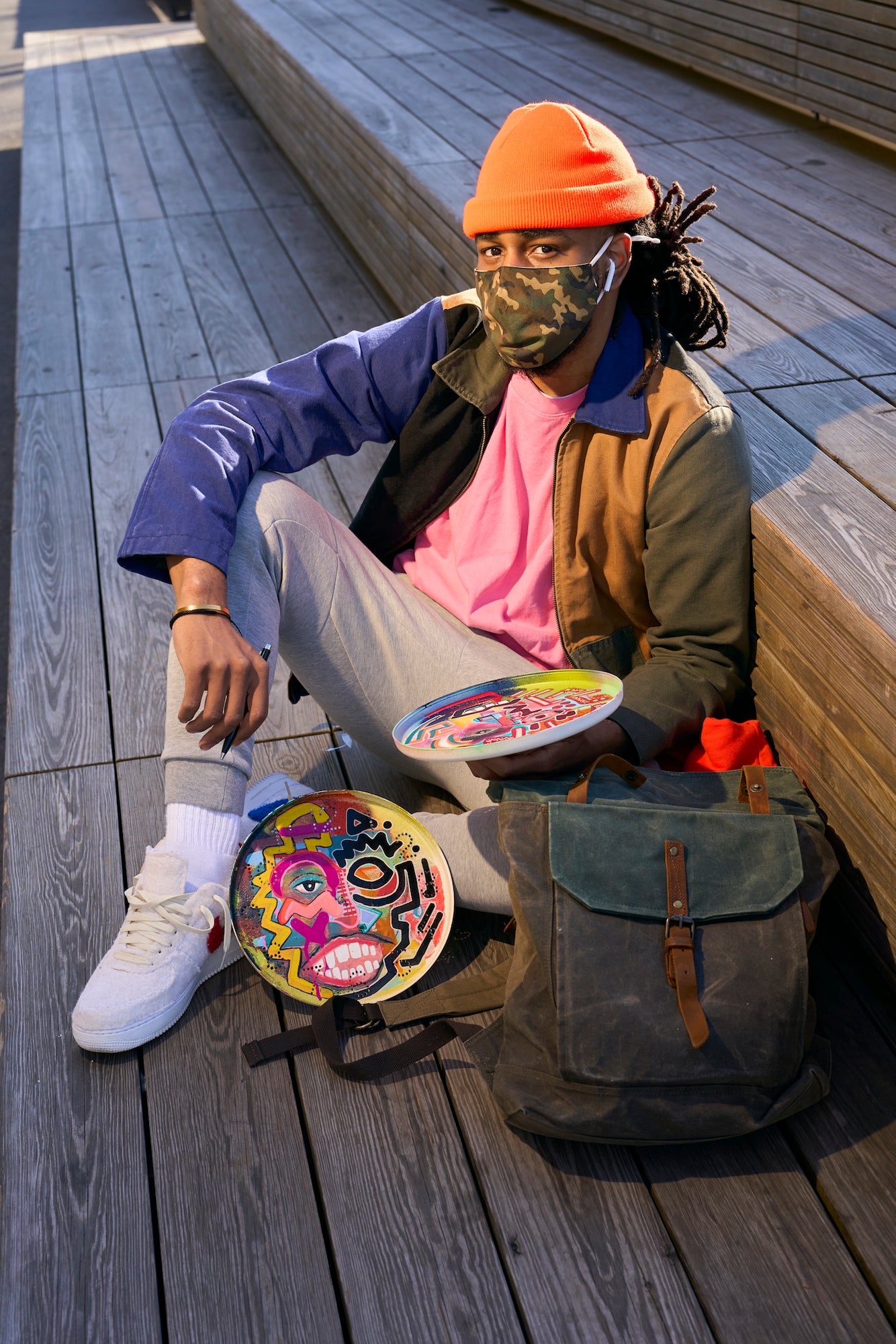
Photo by Ira Block. Sony Alpha 7C. Sony 50mm f/2.5 G. 1/250-sec., f/5.6, ISO 160
“It's an effort that you are doing purposefully. So street photography you could be just approaching people, talking to them and shooting them. You could be doing those grab shots. You could even be doing a type of formal portrait of people looking at the camera on the street, in an environment. Then you could take it another step and have a strobe that's easiest to use to get a certain look and style. Street photography is kind of across the board and all about how you feel best about doing it.”
Choose The Right Gear
Sometimes approaching others with a giant rig can be intimidating and immediately ruin the authenticity of the moment. Block says it works better to walk around with a smaller system. “You certainly don't want to be walking around with three camera bodies and a 600mm lens. I think it's less intimidating having a smaller system. That's one of the reasons I like the new Alpha 7C and the trio of Sony’s compact G lenses (see more about how Ira Block uses his Sony Alpha 7C and the new compact G series primes in our article The Power Of A Small Prime On A Small Camera HERE), because it's less intimidating compared with my Sony Alpha 1 and putting on a 24-70mm or some big lens. A smaller lens, and a smaller camera is a better situation.”
The lenses you choose for street photography depend on the style you’re going for, and Block has always liked wider lenses because he likes to get close to the subject while showing the environment behind the person. “I like getting close to the subject with say the Sony 24mm f/2.8 G. If you're working in an environment like New York City or Chicago, then the clothing and the people aren't going to be as unusual, so the wider lens there helps tell the story. If you’re working in a remote area with indigenous people that look fantastic and have great unique clothing, that's pretty strong right there and you could work with the 40mm f/2.5 G or 50mm f/2.5 G lenses. I've been purposefully using the 40mm a lot more just to see what it does and what kind of style of photo you get.”
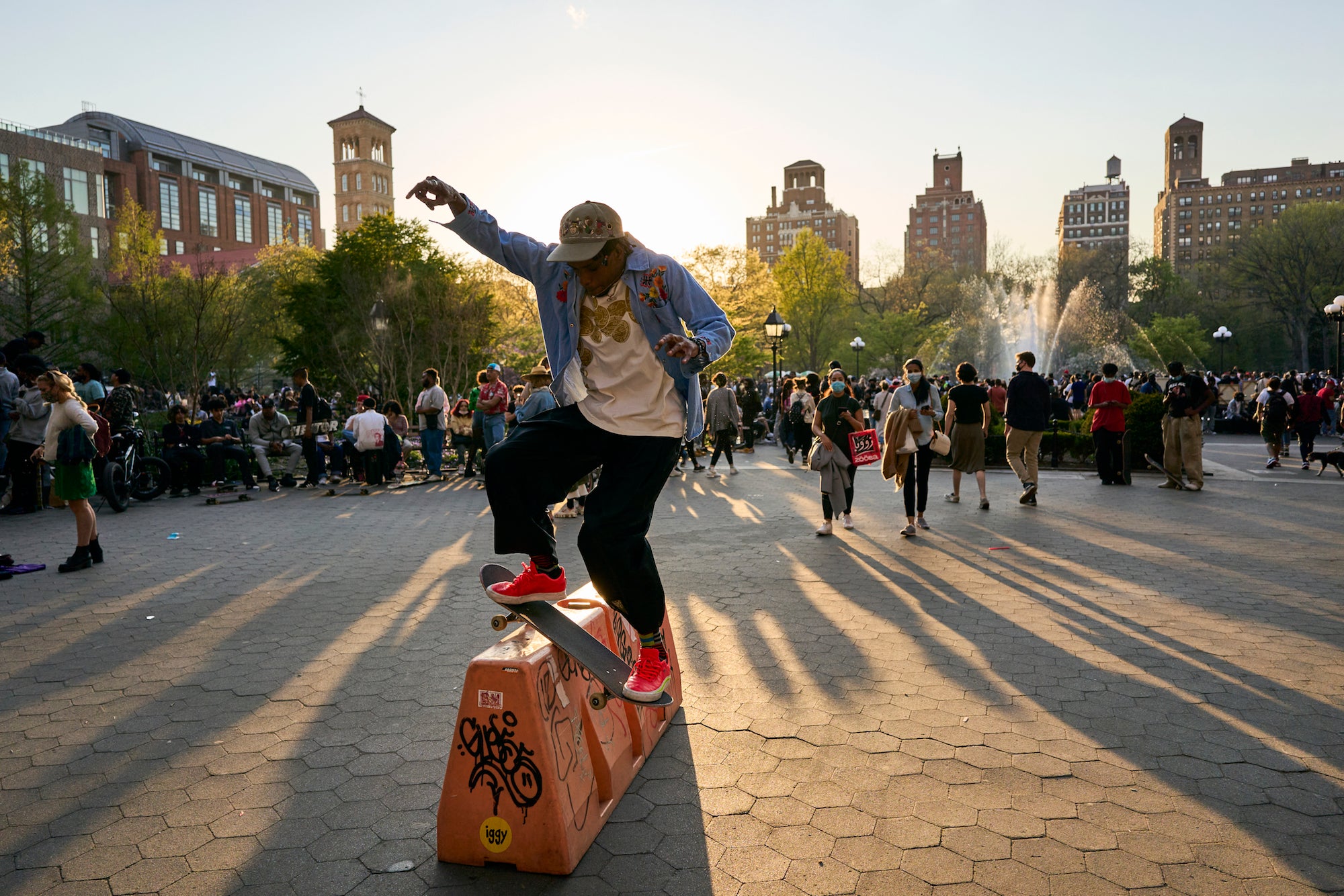
Photo by Ira Block. Sony Alpha 7C. Sony 24mm f/2.8 G. 1/2000-sec., f/3.5, ISO 400
“The other thing I like about this setup is that with the Alpha 7C, the viewfinder is on the side,” explains Block. “When I hold the camera up to my right eye, the left half of my face is exposed. Whereas if I hold my Alpha 1 or something up to my face, the viewfinder is in the middle and it's covering most of my face. Having part of my face exposed helps me connect more with my subject.”
Know Your Camera & Have It Ready To Shoot
With street photography, you have to be ready to capture moments quickly before they pass or the authenticity fades. Block says it’s important to know your equipment and have it ready to shoot. “When you're dealing with people, you don’t want to be fumbling around and like anything you're shooting, you want to know your equipment. If you buy a brand new camera and go out the next day, you're not ready yet. You want to work with the equipment that feels very comfortable to you. You want to know that your fingers are going to the right dials very quickly, so you can make any adjustments necessary.”
Capture A Compelling Moment
Anyone can step outside with a camera and start snapping images, but what separates a strong street photo from a weak one? What is it that makes a street photograph compelling? Block says it’s all about capturing real moments. “It would be a moment in time that you capture, that is a real moment as opposed to a setup moment. And the information in the picture would be pretty strong as location goes and personality goes.”
Make Contact To Break The Ice, Then Wait It Out
If you’re doing the kind of street photography where there's a scene or situation going on, and you really want to work it and get more in-depth photos, you have to do it the right way to keep things authentic. “In that case, you usually have to make contact with the person,” explains Block. “When you make contact with the person, and if they agree, then your initial problem is that they're aware of the camera and the real situation has suddenly disappeared. What you need to do then is to wait them out. You just keep shooting until at some point they ignore you and really go back to what they're doing. It’s not always the case, sometimes people will continue right back to what they were doing, but others may suddenly stiffen up. Those are the ones where you need to sort of wait them out or talk them down a bit.”
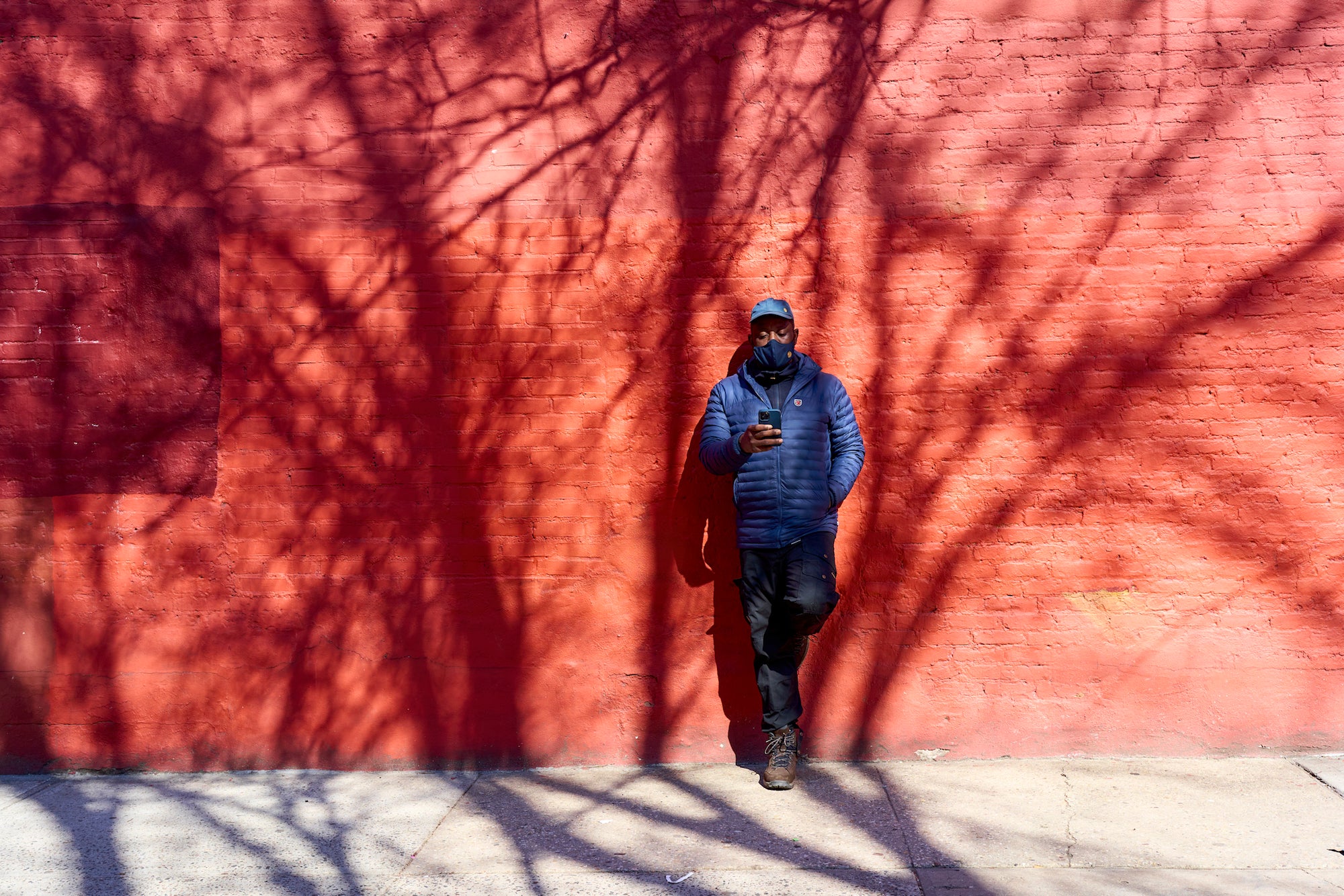
Photo by Ira Block. Sony Alpha 7C. Sony 40mm f/2.5 G. 1/320-sec., f/6.3, ISO 200
Establish A Territory
In some situations, Block says it makes more sense to establish your own territory and let your subjects enter the scene. “Imagine two people are talking to each other on the street or doing something with each other, and you walk into that situation and start photographing them. You're basically infringing on their territory and so you have to explain what you’re doing. Another way is to find your interesting background or environment that helps tell the story you're trying to tell, and you plant yourself in that environment. You have your cameras out and then you wait for people to walk into that environment. Now you've established a territory and people moving into that territory know there's a photographer there and if they walk into this situation, they may get photographed. To me, it's a psychological thing where someone is more willing to be photographed if they’re coming into my territory rather than me breaking into theirs."
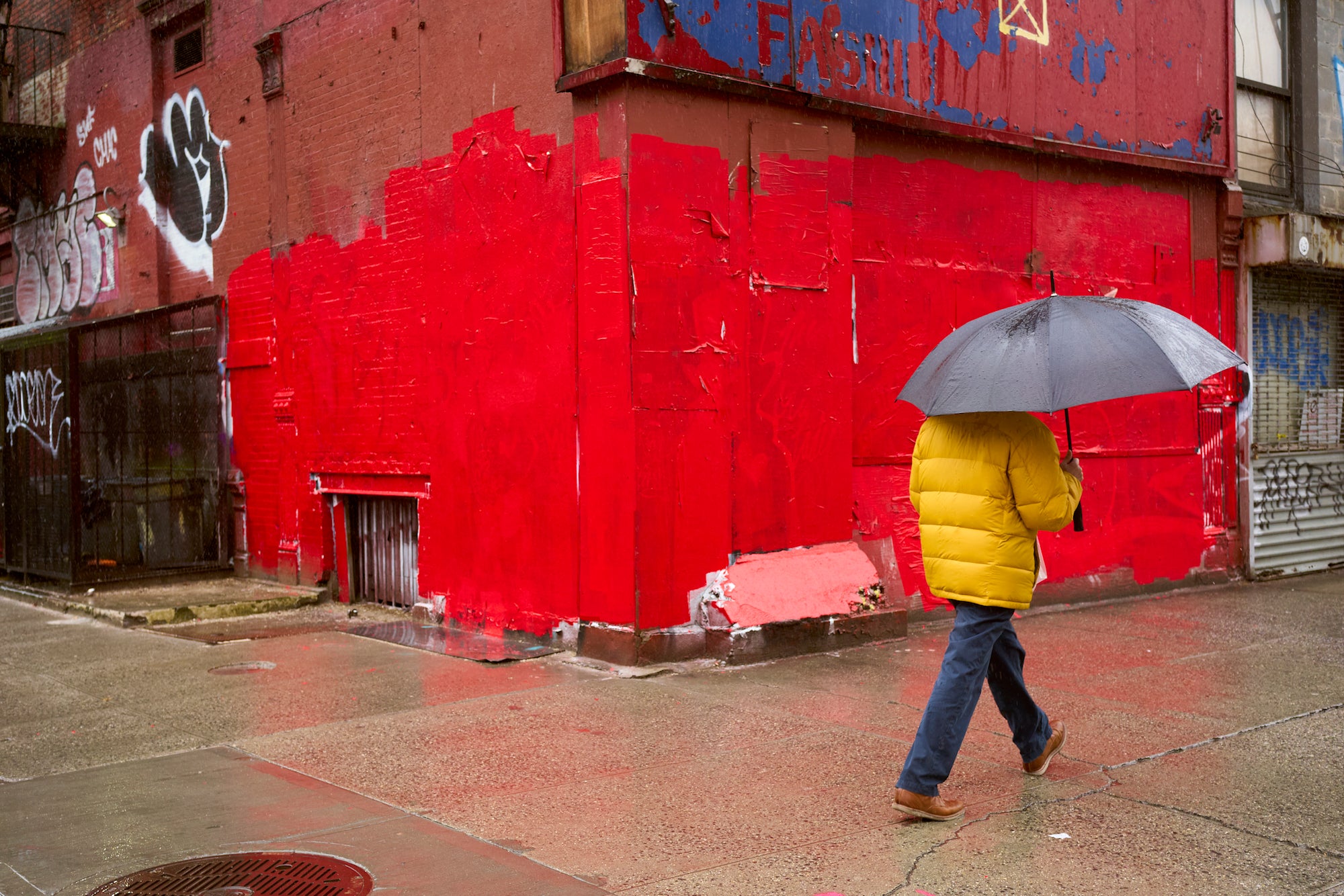
Photo by Ira Block. Sony Alpha 7C. Sony 40mm f/2.5 G. 1/400-sec., f/4, ISO 800
When In Doubt, Look For Multiple People
If you’re having a hard time capturing a street photo including a person while keeping the moment authentic, you can try to look for groups of people to photograph. “It's harder to capture an authentic moment with just one person doing something,” explains Block. “Whereas if you had two or three people doing something, then it's easier for them to forget you're there because they're focused on their other friends or whatever they're doing. This obviously isn’t a hard rule, but sometimes a single person feels more compromised when you’re there. When there is a group of two to three people, they’re usually having a good time and don’t mind photos being taken.”
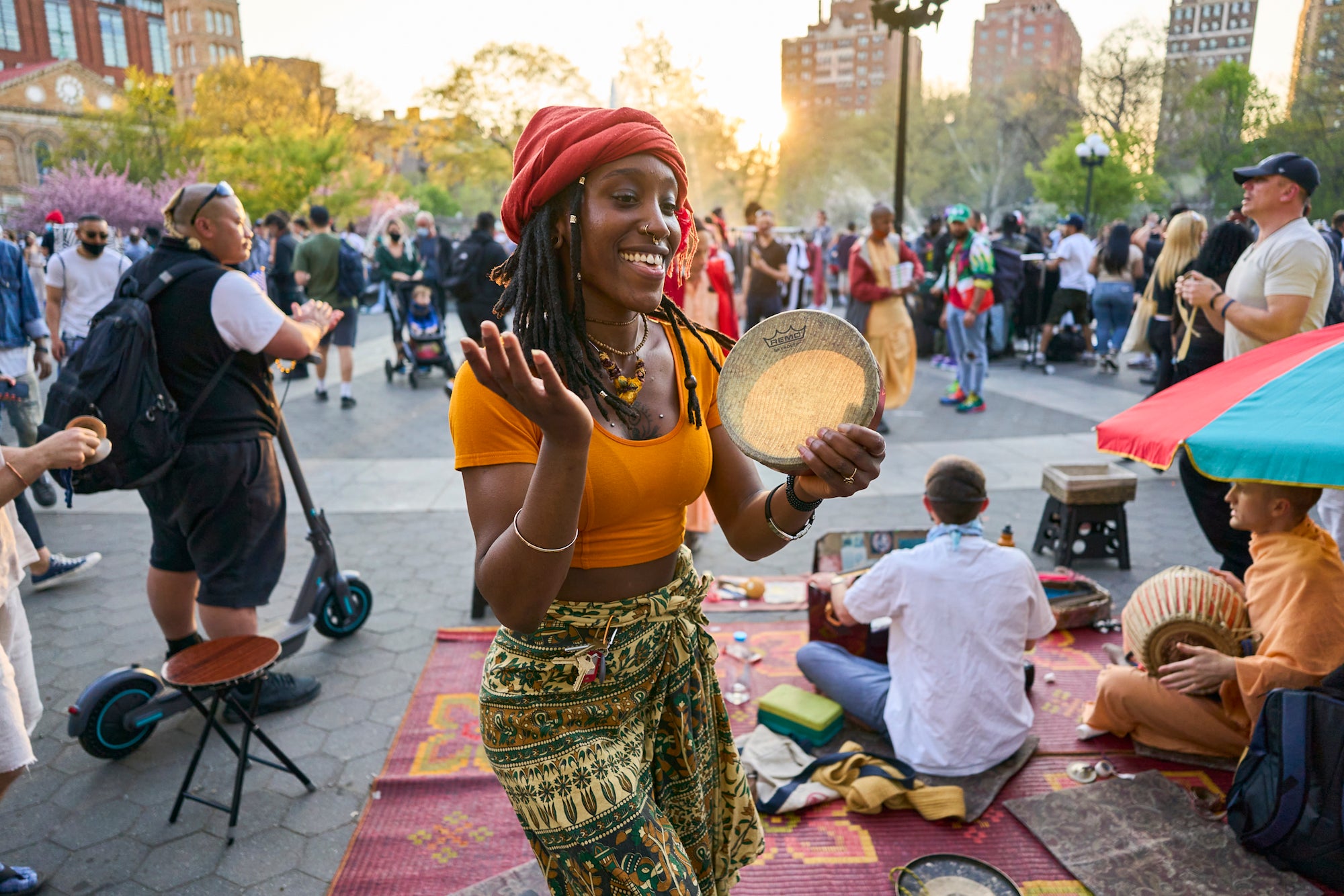
Photo by Ira Block. Sony Alpha 7C. Sony 24mm f/2.8 G. 1/1000-sec., f/2.8, ISO 640
Remember, It’s Not About You
Your demeanor as a street photographer will likely have an impact on the images you produce. You might have to practice your approach in order to work it out. “There are little psychological advantages or disadvantages you could have. How you approach people, your demeanor and how open you are can determine their feelings about you photographing them. I’ve found that when you start talking to people, after you tell them what you are doing, the best thing to do is try not to talk about yourself. Instead engage them about what they're doing and listen to them. It's about them, not about you.”



